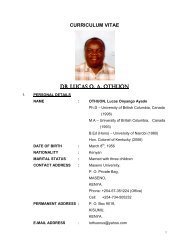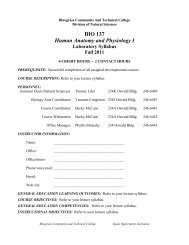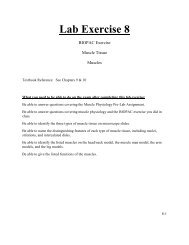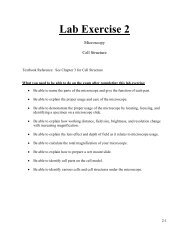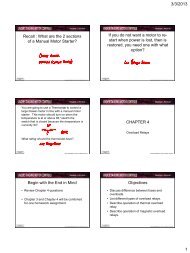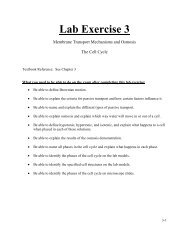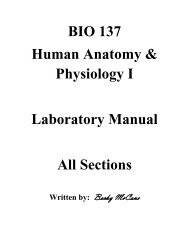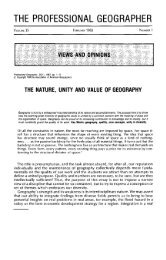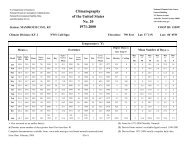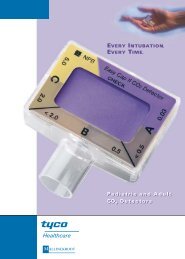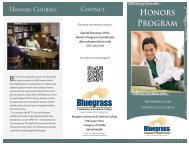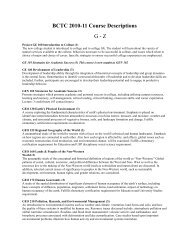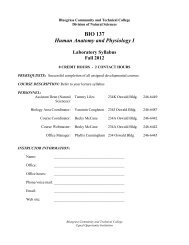Learning Strategies, Study Skills, & Paired Courses - College ...
Learning Strategies, Study Skills, & Paired Courses - College ...
Learning Strategies, Study Skills, & Paired Courses - College ...
You also want an ePaper? Increase the reach of your titles
YUMPU automatically turns print PDFs into web optimized ePapers that Google loves.
A Peer-Editing Writing Workshop<br />
Description<br />
In a Writing Workshop class, students share drafts of their papers with other students in order to<br />
practice identifying grammar and punctuation errors. This collaborative workshop allows<br />
students to practice their skills and demonstrate what they have learned up to this point. With this<br />
type of practice, students will be able to more quickly recognize and correct errors in their own<br />
writing.<br />
1) Students come to class with a typed, double-spaced draft of a paragraph or short paper.<br />
2) After students spend time self-editing their own paper (10-15 minutes), each exchanges<br />
their paper with another student.<br />
3) Students use what they have learned and cheat sheets* to point out errors in their<br />
classmate’s paper. Students may circle or indicate the errors in the margins, but cannot<br />
correct the mistakes.<br />
4) The two students who exchanged papers get together to discuss the errors that they found.<br />
They try to come to a consensus on how to correct the errors.<br />
Additional Recommendations<br />
• Prepare half-page prompt sheets to help students focus their attention on only one or two<br />
specific things they have learned up to this point. For example, a prompt sheet can<br />
describe a variety of sentence types. Later in the term, a prompt sheet might contain a list<br />
of transitional words. Also, remind students to focus on only one paragraph since the<br />
writer should be able to make corrections to subsequent paragraphs on his/her own.<br />
• Be available to answer questions or clarify issues. Move in and out of groups to check<br />
student progress. Ask students why they circled something or how they might correct an<br />
error.<br />
• Have a “hot seat” (at the instructor’s table) available for students who are shy about<br />
working with other students. Allow these students to collaborate with the instructor in<br />
the “hot seat.” Help the student locate his/her mistakes by raising questions? “Why is this<br />
comma here? What rules does this follow?”<br />
• Remind students to retain all edited drafts and turn them in with their final draft. Students<br />
should get credit for this peer editing workshop.<br />
*Note: In my class, students are given a “Cheat Sheet” very early in the term with the most<br />
common rules of grammar and punctuation listed (bright green). They use this sheet throughout<br />
the term and can use it to help in the peer-editing workshop.<br />
Contributor<br />
Frieda R. Campbell-Peltier, Instructor, Portland Community <strong>College</strong>, Portland, OR<br />
(fcampbel@mail.pcc.edu)<br />
24.



